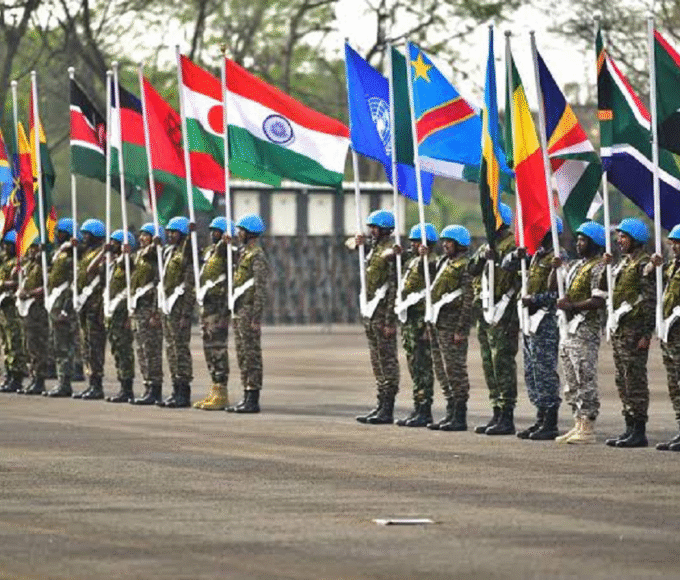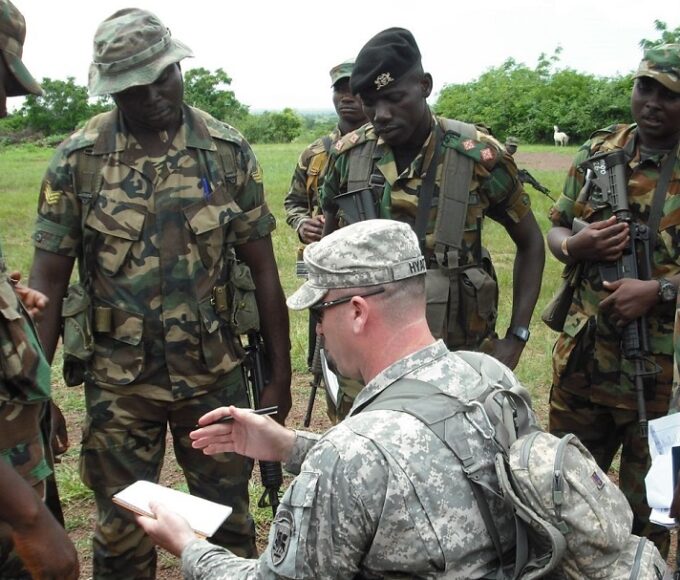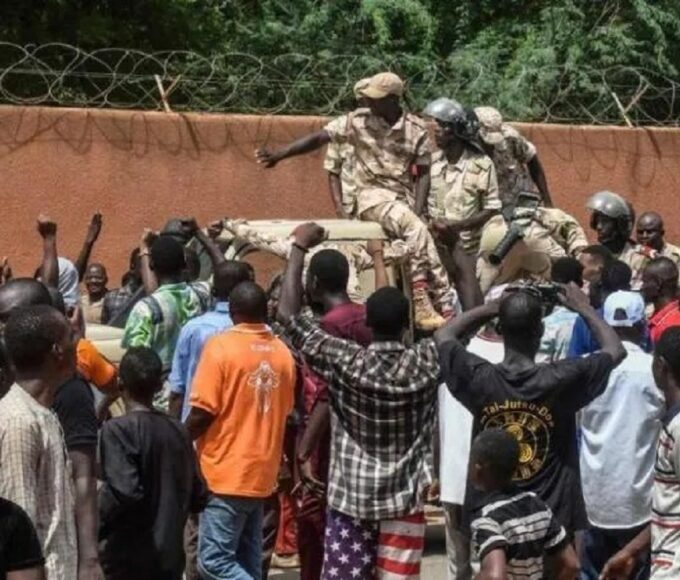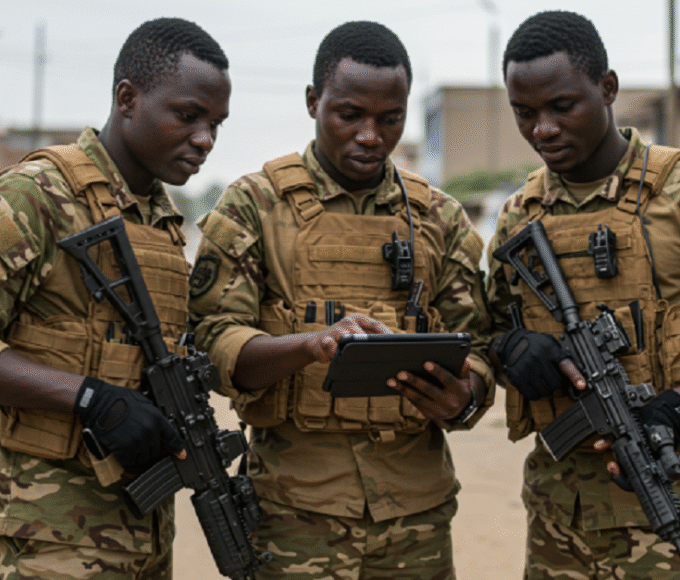From Peacekeeping to Power Projection: How Africa’s Military Footprint is Evolving

For decades, Africa’s militaries were cast as peacekeepers — stabilising broken states, containing insurgencies, and upholding foreign mandates under United Nations or African Union flags. Today, that image is undergoing a subtle but striking transformation. Across the continent, a new generation of military leaders, doctrines, and deployments is recasting African armed forces as strategic actors capable not only of keeping peace but of shaping the security landscape around them.
From Kigali to Cairo, from Nairobi to Abuja, Africa’s military footprint is evolving. This is no longer an era defined solely by blue helmets and ceasefire monitoring. It is one of expeditionary readiness, cross-border deterrence, and calibrated power projection — often led by African states themselves.
The Shift: Sovereignty, Strategy, and Security Ambition
In the early 2000s, peacekeeping was Africa’s defence signature. With over 80,000 African troops deployed across UN and AU missions by 2010, the continent earned a global reputation for its commitment to stabilisation. Yet, these deployments were often reactive, externally mandated, and slow to adapt to complex local conflicts. African militaries bore the brunt of casualties while wielding limited strategic authority.
The tipping point came with the rise of asymmetric threats: terrorism in the Sahel, maritime piracy in the Gulf of Guinea, and insurgencies in eastern DRC. These crises demanded proactive, flexible responses — and African states began to step forward, not as subcontractors of peace, but as sovereign security providers.
Rwanda: The Vanguard of Military Diplomacy
No state has exemplified this shift more visibly than Rwanda. Under President Paul Kagame, Kigali has pioneered a model of expeditionary military diplomacy. In 2021, Rwanda deployed troops to Mozambique’s Cabo Delgado province — not under a UN flag, but at the invitation of Maputo, to assist in fighting Islamist insurgents.
The operation, backed by disciplined troops and robust logistics, was swift and effective. It marked the first time an African country had unilaterally deployed to another state for counterterrorism without relying on Western logistical support. Since then, Rwanda’s military has played stabilisation roles in the Central African Republic, South Sudan, and even led peacekeeping training programmes for neighbouring countries.
“We are not an occupying force,” said General Jean Bosco Kazura, Chief of Defence Staff of the Rwanda Defence Force (RDF), in a 2024 interview. “We are partners in African security.”
Nigeria: Regional Leadership by Fire
Nigeria, Africa’s most populous nation and largest economy, has long played a critical — and often underappreciated — role in regional security. As a founding member of the Multinational Joint Task Force (MNJTF) against Boko Haram, Nigeria has not only deployed thousands of troops but has also anchored joint operations with Niger, Chad, and Cameroon.
What’s new is the strategic posture. Nigeria’s Armed Forces under General Christopher Musa have transitioned from a defence-heavy doctrine to a forward-leaning, multi-domain strategy. The deployment of Special Forces, ISR (intelligence, surveillance, reconnaissance) assets, and amphibious units has strengthened Nigeria’s deterrence beyond its borders — particularly in the Lake Chad Basin and Gulf of Guinea.
At a 2025 Joint Chiefs Forum, General Musa remarked, “Africa’s security will not be outsourced. We must own it, lead it, and sustain it.”
Egypt and Algeria: Maritime Muscle and Strategic Reach
In North Africa, Egypt and Algeria are flexing their strategic weight. Egypt has expanded its naval presence in the Red Sea and Eastern Mediterranean, acquiring Mistral-class helicopter carriers and German-made submarines to secure maritime chokepoints and safeguard energy corridors. Its “Bright Star” exercises with Arab and African states now double as diplomacy and deterrence.
Algeria, meanwhile, has deepened security ties with Sahelian states, launched counterterrorism drills with Mali and Niger, and modernised its air and ground forces — becoming a key player in Maghreb-Sahel dynamics. Its military diplomacy, long cloaked in secrecy, has now entered public discourse.
East Africa: From Stabilisation to Projection
Kenya, Ethiopia, and Uganda have also recalibrated. Kenya’s Kenya Defence Forces (KDF), initially deployed under AMISOM in Somalia, now conduct targeted anti-Shabaab operations beyond formal peacekeeping parameters. Its 2024 incursion into the Boni Forest borderlands was a textbook case of layered counterinsurgency, combining aerial drones, community liaison teams, and inter-agency coordination.
Ethiopia’s post-Tigray conflict reforms included the development of a rapid deployment force trained for both domestic and regional operations. Uganda continues to position itself as a forward-operating hub, with regional bases and an extensive military-industrial complex under expansion.
Changing Doctrine, Changing Missions
This shift from peacekeeping to projection is not just operational — it is doctrinal. Africa’s military colleges and defence academies are rewriting manuals. War colleges in Nigeria, Egypt, and South Africa are introducing new modules in cyber warfare, hybrid threats, and regional strategy.
“Peacekeeping assumes a frozen conflict,” said Colonel Alice Wanjiru, an instructor at Kenya’s National Defence College. “Power projection assumes fluid threats — and the ability to shape outcomes.”
Key features of the new doctrine include:
- Pre-emptive Capacity: Ability to deter or neutralise threats before they metastasise.
- Joint Interagency Tasking: Integration of military, police, and intelligence in fluid theatres.
- Regional Interoperability: Harmonisation of procedures across ECOWAS, SADC, and EASF formations.
- Information Warfare Readiness: Use of psychological operations, strategic communications, and cyber defence.
Risks, Realities, and the Road Ahead
While this evolution is promising, it comes with profound risks.
Power projection can easily morph into overreach, especially in fragile democracies where civilian control of the military remains tenuous. Rwanda has been lauded for discipline, but critics warn of reputational risks if operations abroad turn into political entanglements. Nigeria’s complex theatre environment — from insurgency to oil bunkering to secessionist threats — stretches its military thin.
Moreover, as Africa’s militaries step onto the global stage, questions about rules of engagement, human rights compliance, and accountability will intensify. External partners — from the US to Russia, China to Türkiye — are keen observers and occasional influencers. Their role in training, arms provision, and doctrine-shaping could sway Africa’s strategic trajectory for better or worse.
Africa is no longer a passive player in global security. Its militaries are stepping into roles once reserved for Western forces — not as mere peacekeepers, but as architects of regional order. This shift demands new thinking, new tools, and new ethics. It also requires political maturity and institutional balance.
As the continent navigates this transition, one fact remains clear: Africa’s security footprint is expanding — and with it, the responsibility to wield power wisely.
King Richard Igimoh, Group Editor ALO
King Richard Igimoh, Group Editor African Leadership Organisation is an award-winning journalist, editor, and publisher with over two decades of expertise in political, defence, and international affairs reporting. As Group Editor of the African Leadership Organisation—publishers of African Leadership Magazine, African Defence & Security Magazine, and Africa Projects Magazine—he delivers incisive coverage that amplifies Africa’s voice in global security, policy, and leadership discourse. He provides frontline editorial coverage of high-profile international events, including the ALM Persons of the Year, the African Summit, and the African Business and Leadership Awards (ABLA) in London, as well as the International Forum for African and Caribbean Leadership (IFAL) in New York City during the United Nations General Assembly.
Recent Posts
Categories
- Air & Aerospace17
- Border Security15
- Civil Security6
- Civil Wars4
- Crisis5
- Cyber Security8
- Defense24
- Diplomacy19
- Entrepreneurship1
- Events5
- Global Security Watch6
- Industry8
- Land & Army9
- Leadership & Training5
- Military Aviation7
- Military History27
- Military Speeches1
- More1
- Naval & Maritime9
- Policies1
- Resources2
- Security12
- Special Forces2
- Systems And Technology9
- Tech6
- Uncategorized6
- UNSC1
- Veterans7
- Women in Defence9
Related Articles
INDIA’S GROWING MILITARY PARTNERSHIPS WITH AFRICA
India’s engagement with Africa is undergoing a quiet but powerful transformation. What...
ByKing Richard Igimoh, Group Editor ALOOctober 14, 2025EVOLVING HORIZONS: TRAINING THE AFRICAN SOLDIER IN A CHANGING LANDSCAPE
The training of African soldiers has undergone a profound transformation in recent...
ByKing Richard Igimoh, Group Editor ALOOctober 2, 2025COLD WAR AFRICA: PROXY WARS AND THEIR IMPACT
The Cold War in Africa, spanning from the late 1940s to the...
ByKing Richard Igimoh, Group Editor ALOSeptember 26, 2025AI AND AFRICA’S MILITARY INTELLIGENCE: PROMISE AND PERIL IN A TRANSFORMING SECURITY LANDSCAPE
Africa’s military landscape is entering a new chapter, shaped by the rapid...
ByKing Richard Igimoh, Group Editor ALOSeptember 22, 2025













